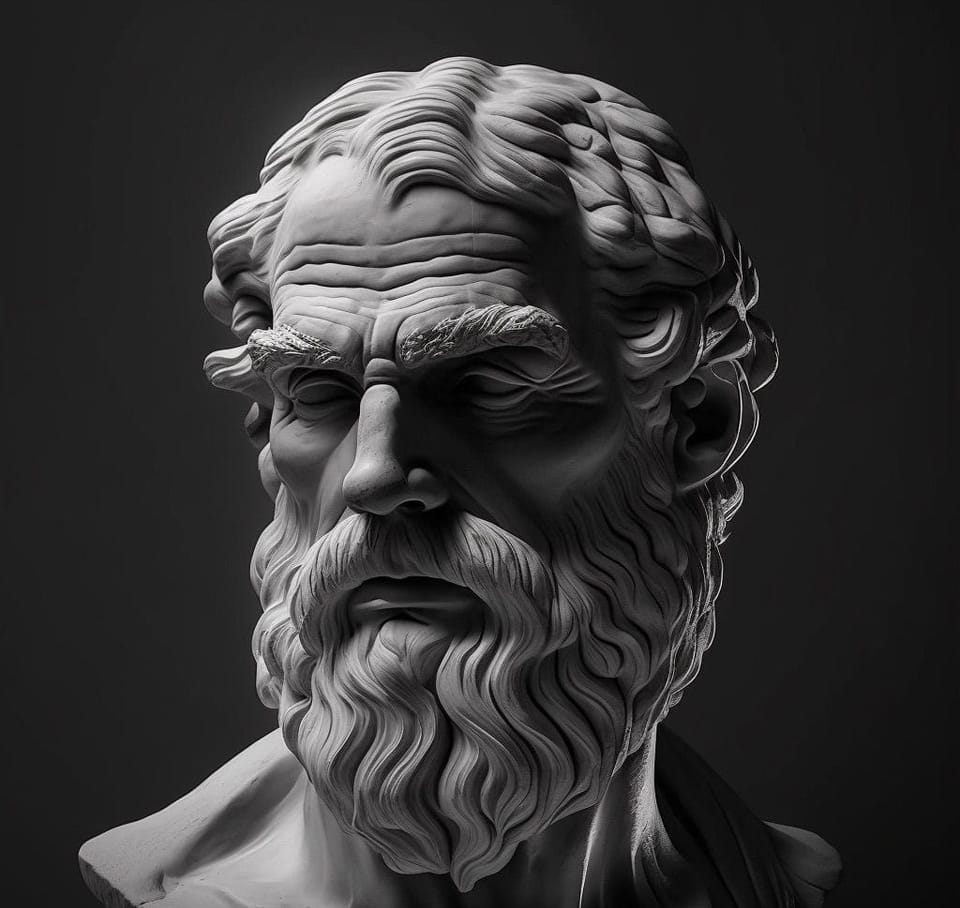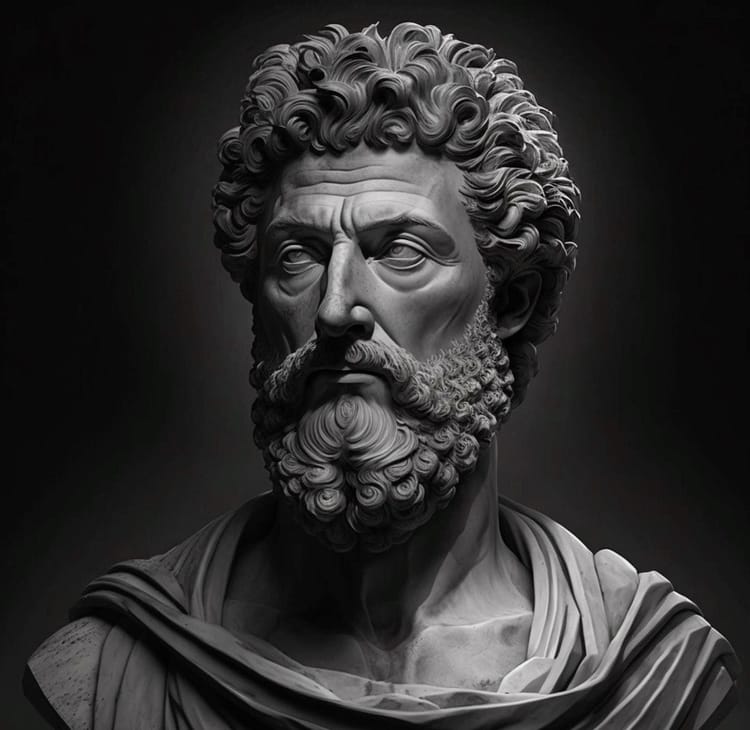Epictetus: The Freed Slave Who Mastered Freedom.

“If you want to improve, be content to be thought foolish and stupid.”
Epictetus is often remembered as one of the most resilient figures in Stoic philosophy. Unlike many other philosophers, his life was shaped by the harsh realities of being born into slavery. Yet, through sheer willpower and a focus on internal freedom, he became one of Stoicism’s most influential teachers. His life story is an inspiring reminder that while we may not control the circumstances into which we're born, we can always control how we respond to them.
From Slavery to Philosopher
Epictetus was born in Hierapolis (modern-day Turkey) around 50 AD and spent his early life as a slave in Rome. Despite his lowly status, he was fortunate enough to be owned by Epaphroditus, Nero’s secretary, who allowed him to study philosophy. Epictetus quickly gravitated towards the Stoic school of thought, and it wasn't long before his intellectual talents shined through.
Upon gaining his freedom, Epictetus moved to Nicopolis in Greece, where he opened a philosophy school. His teachings, like those of his predecessors, focused on the idea that while external conditions cannot always be controlled, our reactions to them can. His message resonated deeply with his students and later with the Roman emperor Marcus Aurelius, who himself studied under the Stoic influence.
The Power of Choice in Modern Life
Epictetus believed that external events don’t harm us; rather, it’s our judgments about these events that cause suffering. In today’s fast-paced world, where anxiety, stress, and uncertainty often dominate, his teachings are particularly relevant.
Application in modern life: Think about how often we let our emotions spiral out of control due to external factors like job stress, a critical comment, or even unexpected traffic. Epictetus would remind us that while these events are beyond our control, our emotional reactions are entirely up to us. By consciously choosing how we respond—by maintaining perspective and composure—we can reduce unnecessary suffering. Imagine being able to maintain peace of mind even when life throws challenges your way; that’s the practical magic of Epictetus’s teachings.
Stoic Practices for Today’s World
Epictetus placed a significant emphasis on daily practices and self-discipline, which can easily be adopted in today’s world.
- Morning Reflection: Before you start your day, reflect on what may lie ahead. Instead of wishing for an easy day, prepare yourself mentally for whatever challenges may come. This helps build mental resilience.
- Focus on what you control: In any situation, separate the things you can control (your thoughts, actions, and responses) from what you cannot (other people's opinions, the economy, the weather). This mental shift can reduce anxiety and help you focus on proactive problem-solving.
For example, in the workplace, it's easy to get frustrated with a difficult coworker or unfair conditions. But through Epictetus’s framework, you’d focus on what you can control—your work ethic, your professionalism, and your attitude. The rest is out of your hands.
Unknown Facts and Stories about Epictetus
Epictetus may not have written any of his teachings down, but his student, Arrian, meticulously recorded them in Discourses and the Enchiridion. Despite this, few know that much of his life remains shrouded in mystery. For instance, there’s speculation that his disability (he was said to have been lame) might have been the result of mistreatment while he was a slave.
An interesting story about Epictetus involves his calm demeanor in the face of personal suffering. It is said that while a slave, his master twisted his leg until it broke. Epictetus, however, remarked calmly, “If you continue, you will break my leg,” and when it broke, he simply said, “I told you so.” This calm acceptance of the inevitable speaks volumes about his practice of Stoicism.
Lessons for the Modern Reader
Epictetus’s legacy lies in his unwavering belief that real freedom is found in mastering your own mind. In a world full of distractions, social pressures, and an overwhelming amount of information, his teachings can guide us toward a more centered, composed way of living.
His idea that "we suffer more often in imagination than in reality" hits home in our age of information overload. With the constant barrage of news and media, it's easy to become stressed about things that may never happen. Epictetus's advice? Focus on what is within your power—your thoughts and actions—and let go of what you cannot change.
In practical terms, this means adopting healthier habits when it comes to stress management. For example, instead of agonizing over every minor inconvenience, train yourself to step back, take a breath, and ask, “Is this within my control?” If the answer is no, release the worry. This simple practice could improve your emotional well-being and overall mental health.
The Modern Epictetus
Epictetus's teachings have influenced thinkers from all walks of life—from soldiers to therapists. His work continues to be a guiding light for people looking to navigate life’s trials without losing their inner peace. Whether you're dealing with work pressure, relationship difficulties, or personal setbacks, his philosophy reminds you that the key to calmness and strength lies in your reactions—not the events themselves.
Conclusion
Epictetus’s wisdom is not bound by time. His teachings offer timeless insights into the human condition, showing that regardless of our circumstances, we have the power to shape our responses to life. The more we practice self-discipline, reflection, and focusing on what we can control, the more resilient and centered we become.
If you’re looking to adopt a more composed, less reactive mindset in today’s chaotic world, reading Epictetus's Discourses is a great place to start. His words may be ancient, but the solutions they offer are more relevant than ever.



